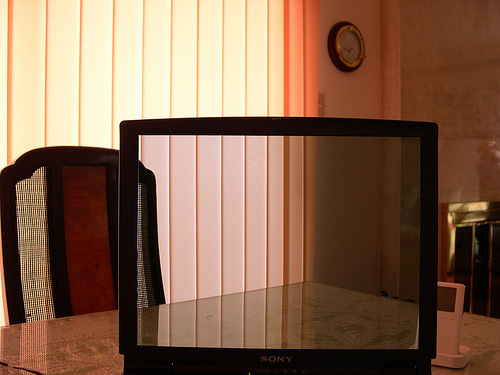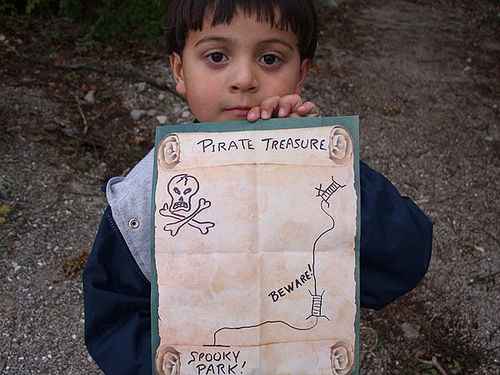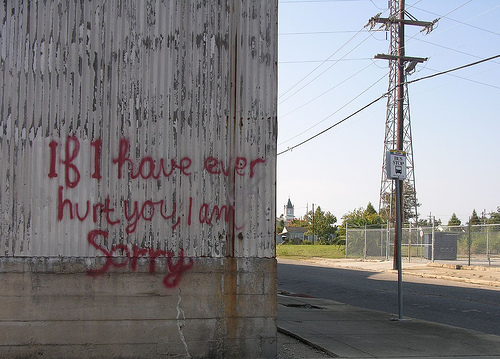Friday Philosophizing time again! I ask open-ended questions. You answer. There will be tea, but not Earl Grey because that’s just wrong.
Is there a difference between honesty and transparency?

Can you be honest without being fully transparent? If what you’re telling is the truth, does it matter if it’s not the whole truth? Do you “owe” (as an individual) and do we expect (as an audience) full disclosure? Is self-editing or self-censorship dishonest or simply canny?
Make your case in the comments.
New piece up over at Thought Catalog. In this one, I turn my Margaret Mead gaze on my parents’ relationship vocab.
P.S. to the Psst… I’m also thinking of starting a new essay series/project-y thing re: community, communications and identity in the post-internet world. Gimme a shout if you’re intrigued and want to kick around the concept.
Hate To Break It To You is a recurring feature wherein we dispense succinct home truths that everyone could benefit from facing up to, unpleasant as they may be.
Aside from treasure maps and ransom notes, there are few communications worth parsing for hidden/secret meanings. Doesn’t stop us from reading into everything from our doctor’s raised eyebrow (Does he think I need to lose weight?) to a coworker’s “good luck” wish before a big presentation (Was that sarcastic?) to the ellipses at the end of someone’s Facebook status update, though. We’ve got it into our collective head that face value isn’t good enough, isn’t true enough. There has to be more. What about decoding body language? Sussing out subtext behind straightforward statements? Parsing the potentially passive-aggressive? If what we’re seeing or hearing doesn’t match up with the story we tell ourselves about ourselves and others, we just dig a little deeper, squint a little harder until the pieces fit together in a way that works for us. WHAT DOES IT MEAN? WHAT ARE THEY TRYING TO TELL ME BY NOT TELLING ME?

The truth? It doesn’t matter. It doesn’t matter what the precise reason why he hasn’t called you back is, only that he didn’t and that tells you all you need to know about him. And you’ll probably never know why you didn’t get an interview for your dream job. Tough luck, but that’s the reality of job hunting, alas. What matters is that you stop spending your mental energy filling in the blanks, putting words in people’s mouths and intentions in their heads. Creating elaborately second-guessed narratives is exhausting and their veracity is nigh on unprovable. And no one’s gonna pay you J.K. Rowling level dough to torture yourself by reading between the lines of your crush’s three sentence text or stressing over whether your kickboxing instructor’s smirk was a silent judgment on your lack of fitness.
Sometimes, when literal is all you get, it’s also all you need.
Chicago got it wrong; it isn’t hard to say I’m sorry, it’s easy, too easy even. We’re now conditioned to apologize by instinct. Sorry, wrong number. Oops, sorry for stepping on your foot, for not hitting the elevator button in time, for loitering in the cereal aisle when you were trying to reach a box of Cocoa Puffs. Reflexive blurts of no more weight or significance than asking, “How’s it going?” and not stopping long enough to hear the answer (because you’re not even expecting one). You get the picture. Conversations sans consequence, annoying in their obsequiousness.

But what about a sincere sorry? How often have you received a genuine apology for a major league hurt? If you’re like me, it’s a very rare occurrence. Sorry for being late/for canceling that meeting/for shrinking your sweater in the dryer. Those don’t count. What about sorry for bullying you and making your life hell in ninth grade? For cheating on you with your roommate? For not calling for three weeks after your dad died because I didn’t know what to say? These are the kind of apologies that count and that we rarely receive. It’s much easier to apologize for violating social niceties than for violating someone’s trust in you. It’s uncomfortable to admit that your behavior, your decisions, you yourself mattered enough in someone else’s scheme of things to cause that kind of hurt, to wield that kind of power. Much easier to assume that they got over it, it wasn’t such a big deal, that’s life. Whatever lets you sleep at night, I suppose.
It’s about time we reversed our apology M.O., IMO. Save your sorry (and your breath) for stuff that matters and change the petty behavior (lateness, sarcasm, an inability to read fabric labels when doing laundry) that keeps you offering reflexive apologies. Or better yet, skip the sorry entirely and simply start making the necessary amends to fix your big ticket missteps. Instead of stewing over the words to use, whether the statute of limitations has expired on breaking the shamed silence or what reaction you’ll receive, do what you’ve always known needs to be done to settle your emotional accounts.
Hate To Break It To You is a recurring feature wherein we dispense succinct home truths that everyone could benefit from facing up to, unpleasant as they may be.
Money trumps self-actualization and anyone who tells you otherwise obviously has no trouble paying their bills or can no longer remember a time when they did. It’s hard to save the world while living under a bridge or being consumed with anxiety about whether the phone will ever ring for another job interview. And I see damn few guru/thought leader types who are willing to acknowledge that you can’t pay this month’s rent with the prosperity doctrine.
 Photo by emdot
Photo by emdot
Prioritizing your need for a stable income and opting for a practical (vs. blissed-out/awesometastic/epic) career choice because you know that it won’t leave you living paycheck-to-paycheck until your government pension kicks in doesn’t make you an unevolved, money-grubbing wage slave, it makes you pragmatic and self-interested. And there ain’t nothing wrong with that. No shame in seeing the game for what it is. No one else has to walk in your shoes or pay off your line of credit. You do what you have to do to get by and then you do what you want to do with the leftover energy and money. But it’s hard to think about that until there actually is leftover energy and money.
Don’t fall into the myopically classist* rabbit hole of berating yourself for “safe” and/or necessary choices that seem to run counter to personal growth truths. Money (and not just the purportedly easy kind that comes from shilling your essence to online suckers) matters and it matters most when you don’t have enough to go around.
*Don’t you doubt for a damn second that the language and philosophy of self improvement and personal growth absolutely reeks with class privilege.




